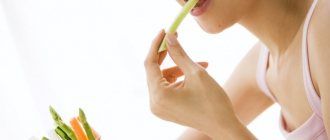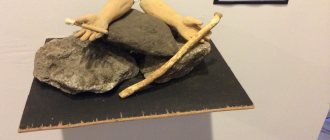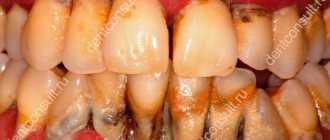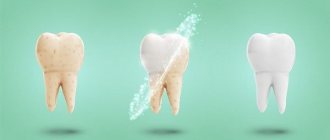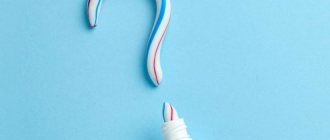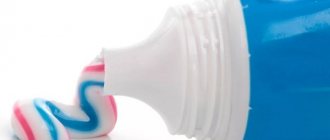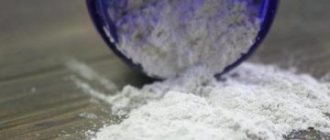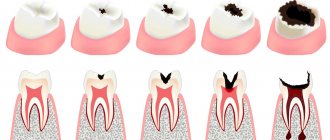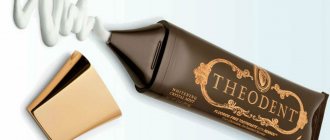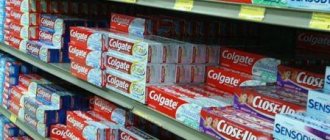Toothpaste is a mandatory attribute of personal hygiene and it is difficult to imagine a modern person who can do without oral care for a long time. Toothpaste not only eliminates bad breath, but is also a good preventive measure for quite serious diseases of the teeth and gums.
However, there may be situations when toothpaste may not be at hand, or its use for some reason is not advisable. In such situations, the question is quite natural: what can replace toothpaste ? The alternative option should be as safe as possible and at the same time quite effective. In order to decide what to replace toothpaste with , you need to pay attention to its composition.
Alternative to a toothbrush
In a situation where you don’t have a brush at hand, you should use natural material. We are talking about a branch of a coniferous tree, be it pine, spruce or fir. It is enough to tear off a small stalk and place it in hot water. The tip of this product is softened by lightly chewing with your teeth. The end result is something like a brush. The product is carefully passed over the surface of the teeth, removing accumulated plaque.
Separately chew pine needles, which are rich in vitamin C, vegetable oils, and amino acids. In combination, the noted substances have a disinfecting and anti-inflammatory effect on the tissues of the oral cavity. Chewing pine needles for several minutes strengthens tooth enamel and gums.
Using a softened pine twig, it is important to thoroughly clean not only the internal, but also the external surfaces of the enamel. Particular attention should be paid to the bases of the molars. After all, it is here that the salivary ducts are located and the formation of tartar is most often observed.
How to store dry composition
Dental experts recommend storing the powder in a dry place, away from direct heat, humidity and temperature changes. The composition is sold in special plastic packaging with a sealed lid - this is the best container, but you need to make sure that moisture and dust do not get inside.
The composition should be stored in airtight packaging
Soda
How to brush your teeth if you don't have toothpaste? A good option is using baking soda. The substance has a non-toxic composition. The powder has an abrasive structure, which promotes high-quality plaque removal. The product has disinfecting properties. In addition to removing bacterial waste products, baking soda is a good teeth whitener.
To brush your teeth without toothpaste, dip a toothbrush or a piece of sterile cotton wool in baking soda. The substance is treated with chewing surfaces. To enhance the positive effect, you can add a couple of drops of lemon juice to the powder. At the end of the procedure, the oral cavity is thoroughly rinsed with water.
After brushing your teeth with baking soda, it is important to avoid eating food and hot drinks for an hour. The abrasive can leave microscopic damage on the enamel. Various types of influences can provoke cracking of the tooth surface in the future.
Doctors do not recommend regularly brushing and whitening your teeth with baking soda. The reason is the same scratching of the enamel by powder crystals. Particles of the substance remaining in the oral cavity can provoke inflammation of the gums and mucous membranes.
What we are dealing with: what is in the product
To find out what benefits and harm powder can bring to teeth, you first need to understand what it is, what it consists of, and why this method of cleansing enamel is good and useful. Essentially, this is the same paste, only in dry form and without the addition of artificial components that enhance effectiveness. Due to the fact that the powder consists of a huge number of tiny abrasive particles, it provides high-quality cleaning from plaque. The effect becomes noticeable after 2-3 applications. Today in the assortment you can find different types of dry cleaning compositions, and all of them can differ in the following parameters:
- aromatic and flavoring additives,
- additional natural ingredients,
- the purpose of the effect is to whiten teeth, heal and strengthen hard tissues, remove yellow plaque, which is especially important for a smoker.
Tooth powder is the same paste, only in dry form and without the addition of artificial components.
The product is sold in compact round boxes with a tight-fitting lid. It should be stored in a dry place protected from moisture.
Tea tree oil
People who want to know how to brush their teeth if they don’t have toothpaste should use tea tree oil. The product contains a lot of biologically active elements that inhibit the activity of pathogenic bacteria that parasitize tooth enamel. The product has a pleasant aroma, eliminating bad odors.
The hygiene procedure is carried out according to the following scheme:
- prepare a glass of warm boiled water;
- add about 3-4 drops of tea tree oil to the liquid;
- the composition moisturizes the toothbrush and removes plaque from the enamel;
- Finally, rinse the mouth with the product several times.
It is useful to perform the procedure daily, before going to bed. Regular use of tea tree oil for oral care reduces the likelihood of developing inflammatory processes in the structure of gum tissue. The folk remedy is suitable for combating caries and periodontal disease.
Features of the composition - how the product “works”
If at the beginning of its appearance the powder was prepared on the basis of ordinary chalk, today its composition has changed significantly and has been enriched with components that are useful and safe for enamel. Chalk remained the base, but now the powder is made using not just crushed, but chemically precipitated substance. The abrasive particles are smaller and less damaging to the enamel.
Thus, the presence of sea salt in the composition ensures remineralization of hard tissues and stimulates metabolic processes in the gums, baking soda allows you to lighten teeth and restore their natural whiteness, and extracts of medicinal herbs have a beneficial effect on oral health in general. Some manufacturers offer products based on white clay. It is believed to provide a more gentle cleansing without sacrificing effectiveness.
The presence of sea salt in the composition ensures remineralization of enamel
Wood ash
What can you use to brush your teeth instead of toothpaste? An ancient folk method is the use of ash. In nature, cooled coals should be taken from the fire. The substance is ground into powder. Add a couple of drops of water until a thick, paste-like consistency is formed. The product is applied to the finger and passed over the surfaces of the teeth. Finally, rinse your mouth with plenty of water. As a result, the enamel gets rid of accumulated plaque and becomes clean and snow-white.
Wood ash is more than just an abrasive. The product contains potassium, calcium, phosphorus, manganese, iron. The complex of these elements creates a special environment in the oral cavity that is not suitable for the active reproduction of pathogenic microorganisms. If you add ground mint leaves to a paste prepared from ash, you can get a product with a pleasant taste and aroma.
What damage can frequent use cause?
If the product is used incorrectly, it may cause some damage to your teeth. Of the possible negative consequences, dental experts identify the following problems:
- thinning of the enamel due to frequent use of the product or due to too intensive cleaning,
- injury to open wounds on the mucous membrane, which leads to their enlargement and exacerbation of painful sensations, increasing the risk of infection,
- the likelihood of bacteria penetrating into tissues and developing various dental ailments, which is largely due to non-compliance with storage recommendations.
With frequent use of the powder, the enamel can become thinner and become sensitive.
To avoid undesirable consequences, you need to observe moderation in everything, do not use the powder too often and follow the instructions. It is also important to follow storage rules.
Clay
What to do if you don't have toothpaste? How to brush your teeth? A good idea would be to use white or blue clay powder. The product is absolutely harmless to the body. The substance contains an abundance of microelements that disinfect oral tissues. Brushing your teeth with clay helps eliminate bad odor.
To rid the enamel of plaque, freshen breath and achieve a whitening effect, I act according to the following principle:
- take about 50-70 grams of white or blue clay;
- the product is moistened with a few drops of water;
- the product is mixed until a mass of paste-like consistency is formed;
- add a dessert spoon of liquid honey, as well as a couple of drops of propolis infusion, essential oils of sage and chamomile.
The prepared paste is applied to a damp brush. Brush your teeth, carefully treating the enamel surfaces. Finally, rinse your mouth with water. Performing the procedure in the morning and evening has the most positive effect on oral health.
Rules of application
To get results without causing damage to your dental health, you must strictly follow the instructions for use. Before you start using the product, carefully read the following recommendations:
- you should not put wet bristles into a dry composition - it is better to pour the product into a different container each time and dilute the product in it,
- you need to add a little water to the composition or mix it with a paste,
- You should use a soft brush so as not to further injure the protective layer of your teeth,
- Duration of the procedure – 3-5 minutes,
- dry product should be used no more than once every 3 days,
- At the end of the procedure, you should rinse your mouth thoroughly with water.
First, it is recommended to consult with your dentist and find out the current condition of the enamel. The doctor will tell you which remedy is best to choose in your case.
Healing herbs
When looking for effective folk remedies for cleaning teeth, you should pay attention to plants such as mint, sage, calamus root, thyme, and cloves. These herbs are combined in equal proportions and ground to a powdery consistency. The resulting product is applied to a moistened brush. Perform delicate teeth cleaning. Using the method allows you to remove plaque, disinfect the oral cavity and improve the condition of the gums.
How much does the product cost?
It is difficult to give a definite answer regarding how much tooth powder costs. Products with a simple composition and without additional additives will cost around 40-50 rubles per package. However, the assortment also includes more expensive products with additional strengthening, soothing or whitening effects - their price can vary between 200-300 rubles. The most expensive are foreign-made compounds, which are positioned to combat plaque in smokers. They can cost 500-600 rubles per package.
Kitchen salt
The mineral substance is known for its disinfecting properties. Thanks to its crystalline structure, the product perfectly cleanses plaque from tooth enamel. The effect of salt on the gums reduces the likelihood of developing inflammatory and putrefactive processes. The oral cavity gets rid of unpleasant odor.
You can use sea salt to clean your teeth. The product is a source of a wide range of microelements: iodine, manganese, phosphorus, calcium, silicon, iron. The noted elements have an antiseptic effect on the tissues of the oral cavity.
How to brush your teeth without toothpaste? The salt is thoroughly ground in a mortar until it becomes dusty. Add a couple of drops of vegetable oil. A damp brush is dipped in the substance. Next, teeth are brushed according to the usual principle. Finally, the oral cavity is thoroughly rinsed with water.
Why do you need to brush your teeth?
The most common dental disease is caries . It destroys tooth enamel. When a hole forms, the tooth begins to hurt when eating. If a person does not treat a tooth, sooner or later it will have to be removed. The best prevention of caries is brushing your teeth.
Plaque accumulates on the teeth, which causes bad breath and the formation of tartar. Regular and proper brushing of teeth leaves no chance for caries.
Caries
Criterias of choice
You can determine which toothpaste is fluoride-free by the absence of:
- fluorides of sodium, aluminum, tin;
- monofluorophosphate;
- sodium fluorosilicate;
- fluorosilicic acid.
Calcium is present in pastes in the form of panotothenate, citrate, lactate, glycerophosphate or synthetic hydroxyapatite.
It’s difficult to choose the best fluoride-free toothpaste; each has its own advantages, let’s take a closer look.
Benefits and potential harm
So, we are convinced that it is too early to retire tooth powder, and it can be an indispensable assistant in dental care. Here are the key advantages of using an old proven product:
- absence of artificial and toxic components,
- thorough cleaning of the enamel due to the abrasiveness of the composition,
- the ability to remove plaque and even hardened dental plaque - bulky stone will have to be removed with ultrasound,
- the property of whitening teeth, returning them to their natural shade,
- additional polishing of the enamel to give a natural shine,
- calming effect, antimicrobial treatment of mucous membranes,
- additional saturation with fluorine if present in the composition,
- normalization of the natural balance of microflora,
- prevention of caries and other pathological processes in the oral cavity,
- affordable price.
Today, powder products that are used to clean teeth have very few negative characteristics. Due to the high degree of abrasiveness, there is some danger of injuring the enamel, which can lead to its thinning and the development of hyperesthesia - hypersensitivity. In addition, the standard packaging lacks airtightness and a dispenser, which makes using the product a little more difficult. For the same reason, the powder can quickly deteriorate, especially if it is stored in inappropriate conditions. Overall, this is an effective additional measure that will improve oral hygiene and prevent many dental problems.
- Vasilyeva, L.A. Prevention and oral hygiene, 2008.
We prepare the product ourselves
The principle of preparation is quite simple, and if desired, a similar product can be made at home. In this regard, a lot of questions arise regarding how to make the product, how to dilute the components and what to add to the composition. Below is a simple and quick recipe:
- You can take medicinal clay as a basis, and other components can be essential oils, soda, sea salt,
- after this you need to mix all the dry ingredients and try to grind them thoroughly. You can use a blender or coffee grinder,
- liquid oils should be added at the end.
Tooth powder can be made at home.
The finished composition should be stored in a dry and clean container. Make sure that no dirt or moisture gets in there. Otherwise, the product will very quickly become unusable.
Does everyone need an irrigator?
First of all, it is needed by those who find it difficult to floss: people with orthodontic structures such as braces and implants, those who have not had their wisdom teeth removed and the space between the teeth is too small to clean with dental floss, and people with disabilities. An irrigator will also come in handy if your gums are sensitive and dental floss causes them to bleed.
Some data say that floss cleans the interdental spaces better, others say that an irrigator does. So the choice between a thread and an irrigator is more a matter of convenience
. You can even use both: this is the most effective way to remove plaque between teeth.
